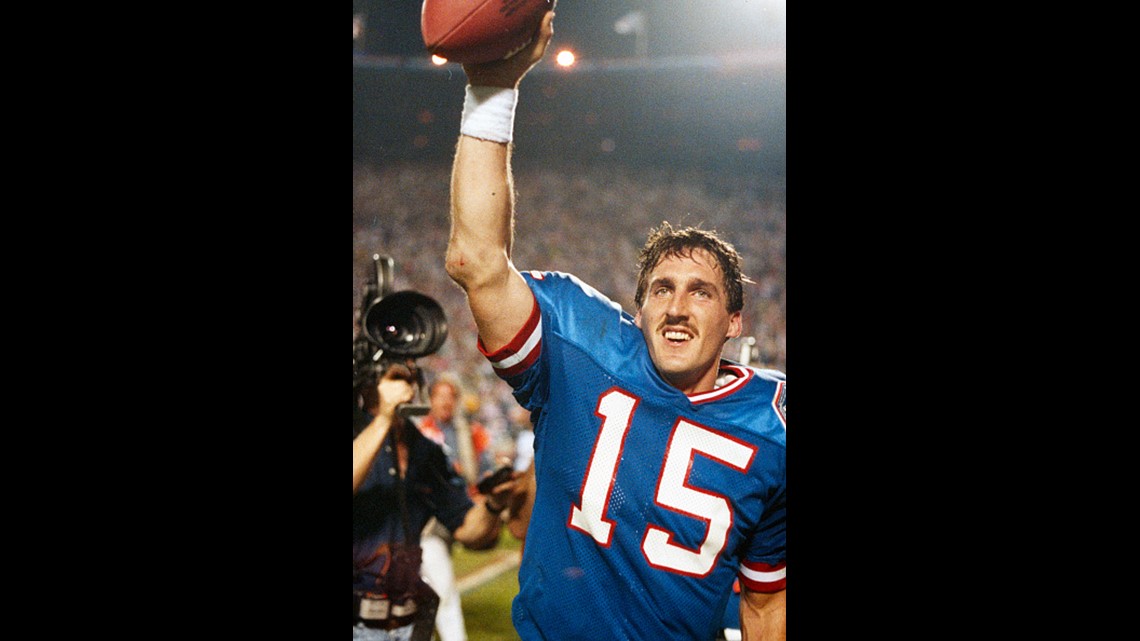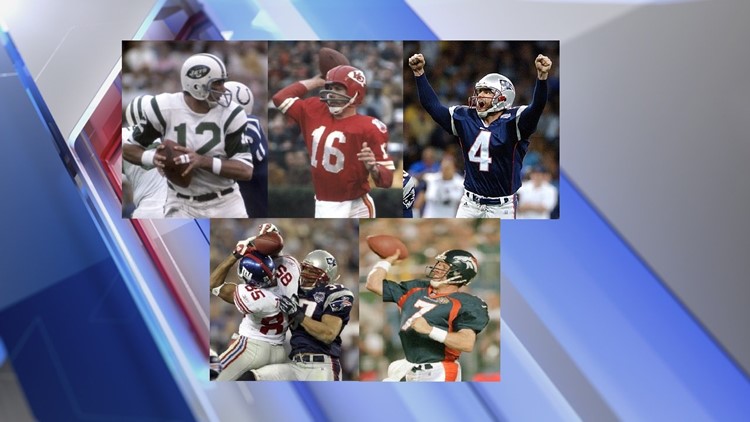Depending on which gambling establishment you go by, the New England Patriots are anywhere from 5- to 6-point favorites over the Philadelphia Eagles in Sunday’s Super Bowl LII.
And if you go by some pundits, the Eagles might save everyone a lot of time if they just conceded to Tom Brady, Bill Belichick and the rest of the gang right now.
But if you’re an Eagles fan looking for something to rally behind, you’ve got plenty of ammunition. The underdogs have had their day in several Super Bowl matchups.
In fact, if Philadelphia somehow prevails on Sunday, it wouldn’t be the biggest shocker in Super Bowl history.
Not even close.
Here are the five biggest upsets in the Super Bowl (if you go by the point spread):
5. Super Bowl IV (1970): Chiefs 23, Vikings 7
(Vikings were 12-point favorites)
Minnesota led the NFL in total points, points allowed and point differential, and entered the game as a 12-point favorite. But Len Dawson and the Chiefs pulled off a second straight stunner for the upstart American Football League, which was considered to be the sub-par conference after the merger with the NFL that brought about the Super Bowl era.
4. Super Bowl XXXII (1998): Broncos 31, Packers 24
(Packers were 12-point favorites)
Brett Favre and the Green Bay Packers were looking to capture their second straight Super Bowl championship, and were heavy favorites to do it against an aging John Elway and the Broncos, whose history of futility in the NFL’s penultimate game was well-documented. Elway played second fiddle to running back Terrell Davis, who racked up 165 yards and three touchdowns on his way to earning the game’s MVP award, but he finally got his championship after going winless in three previous Super Bowl tries.
3. Super Bowl XXXVI (2002): Patriots 20, Rams 17
(Rams were 14-point favorites)
It’s hard to imagine, given his current status as a NFL living legend, but Patriots quarterback Tom Brady was once an unheralded afterthought. But he had his coming-of-age game in 2002, leading New England to a stunning win in one of the most dramatic NFL championship games ever. The Rams, with QB Kurt Warner, RB Marshall Faulk and WR Torrey Holt, had an offense dubbed “The Greatest Show on Turf,” but the Patriot defense muted St. Louis enough to say in the game. Then Brady, who threw for just 145 yards, led the Pats on a long drive to set up Adam Vinatieri’s game-winning 48-yard field goal as time expired.
2. Super Bowl XLII (2008): Giants 17, Patriots 14
(Patriots were 14-point favorites)
New England became the first team to go 16-0 in the regular season (yes, the 1972 Miami Dolphins went unbeaten, but that was when the NFL season was just 14 games), and entered the game as a prohibitive favorite, as Brady and free-agent wideout Randy Moss spent the year terrorizing NFL defenses. But Eli Manning and the Giants had the answer, aided by a miraculous catch from wideout David Tyree on the final, game-clinching drive. The game will also be remembered in New England for Asanti Samuel’s drop of a no-brainer interception.
1. Super Bowl III (1969): Jets 16, Colts 7
(Colts were 17-point favorites)
It’s the game that turned Joe Namath into “Broadway Joe.” The Colts entered the game as 17-point favorites, but Namath, who guaranteed victory in the days leading up to the game, backed up his brash prediction by leading the Jets to a shocking upset. The footage of Namath jogging off the field, casually waving his index finger in celebration, is one of the NFL’s most iconic images.


Honorable Mention: Super Bowl XXV (1991): Giants 20, Bills 19
The Bills, with an offense led by QB Jim Kelly, RB Thurman Thomas and wideout Andre Reed and an imposing defense fronted by DE Bruce Smith, are probably the best team never to win a Super Bowl, going 0-4 after making the big game four times during their era. They were seven-point favorites against New York, but the Giants’ ball-control game plan in the second half paid off. One of the most dramatic games in Super Bowl history, it ended when Bills kicker Scott Norwood’s 47-yard field goal as time expired missed wide right.
Why do we mention this game?
The Giants won it without starting quarterback Phil Simms, who suffered a foot injury in New York’s Week 11 regular-season loss to Buffalo.
Backup Jeff Hostetler was under center for New York in the Super Bowl rematch, leading the Giants to the upset.
This year (as you might have heard), the Eagles are in the Super Bowl without their starting QB; Carson Wentz was having an MVP-type season before being lost for the season to a knee injury during Philly’s victory over the Los Angeles Rams.
Nick Foles … you’re up.



